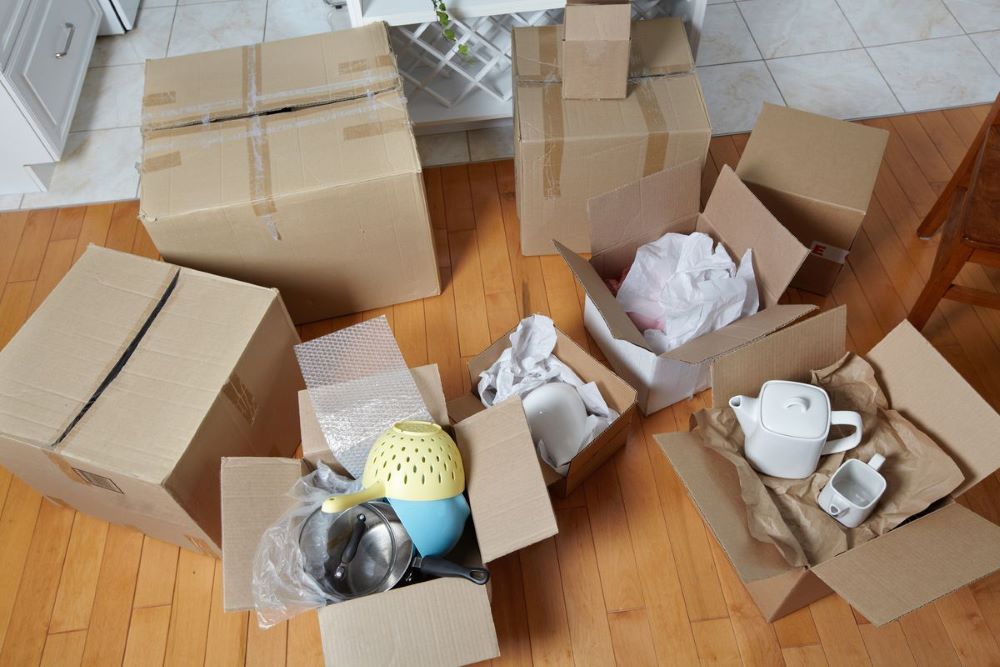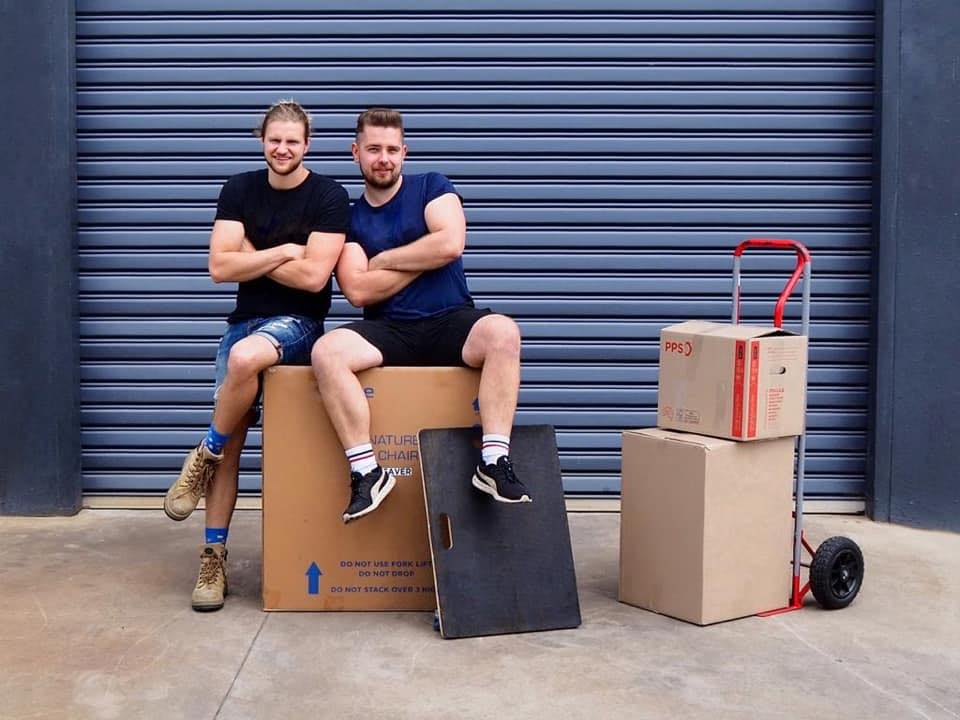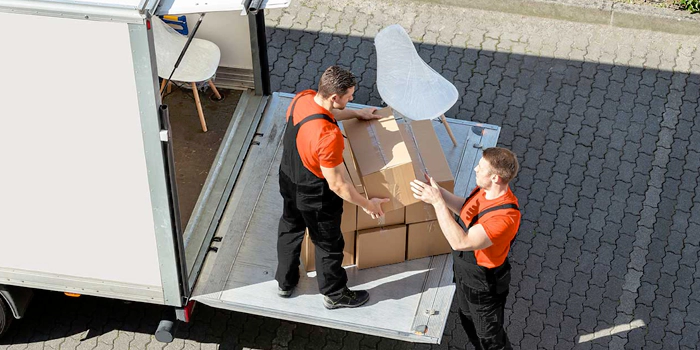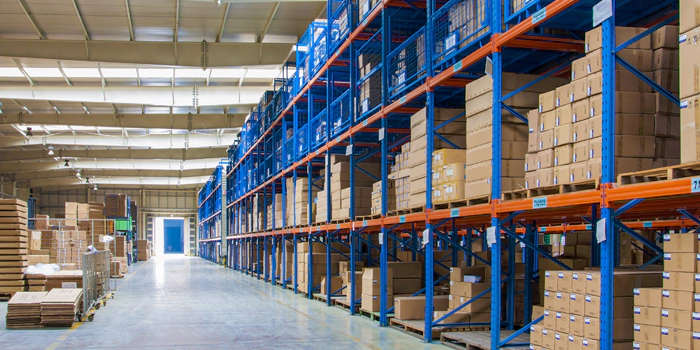
It’s moving day, and boxes surround you. You wonder how everything will fit in your car. That antique cabinet looks much heavier than you remembered, and you already feel the backache. Sound familiar? You’re not alone. Australians are among the most frequent movers in the world, with nearly 40% changing addresses every five years and the average person moving 13 times in their lifetime.
Moving consistently ranks among life’s most stressful events, often accompanied by physical strain, damaged possessions, and overwhelming logistics. The Australian Furniture Removers Association (AFRA) reports that DIY moves frequently result in injuries and property damage, not to mention the time commitment that can stretch over days or even weeks. Research shows that the average Australian spends approximately 7-10 days on self-managed moves, so it’s no wonder many are turning to professional help.
Why More Australians Are Hiring Professional Movers

Australia’s removal services industry is substantial, generating approximately $1.8 billion since last 5 years of 2023 and employing thousands of workers nationwide. This thriving sector exists because Australians increasingly recognise the value of professional assistance during moves.
The complexity, distance, and regulatory requirements of crossing state lines make professional services particularly valuable for longer moves.
If its’s moving locally or interstate, Australians are increasingly recognising that professional movers offer significant benefits: physical safety, property protection, time savings, and dramatically reduced stress levels during what’s already a challenging life transition.
Services Provided by Professional Movers

Professional movers provide a full range of services to cover all your moving needs, from planning and packing to transport and setup. Today’s moving companies do more than just move boxes—they offer complete, end-to-end solutions designed to make your move as smooth as possible.
Whether you’re relocating a home or office, these services are flexible and customizable. You can choose full-service support or just the help you need, making the entire moving experience more efficient, stress free, and tailored to your situation.
Complete Service Offerings from Professional Movers:
- Pre-move consultation and planning – Professional assessment of your moving needs, timeline development, and logistical planning to ensure a smooth transition
- Full-service packing – Comprehensive packing of all household items using professional-grade materials and techniques to ensure maximum protection
- Partial packing assistance – Selective packing of fragile, valuable, or difficult items while you handle standard belongings
- Specialized item handling – Custom crating and specialized protection for artwork, antiques, musical instruments, and other high-value possessions
- Furniture disassembly and reassembly – Professional dismantling of furniture pieces too large for transport and expert reconstruction at your destination
- Loading and transportation – Strategic loading of possessions into appropriate vehicles with secure anchoring to prevent shifting during transit
- Unloading and placement – Careful positioning of furniture and boxes in designated areas of your new home according to your specifications
- Unpacking services – Systematic unpacking of boxes with organized placement of items in appropriate locations
- Storage solutions – Secure short-term or long-term storage options in climate-controlled facilities for items that cannot immediately be moved to your new location
- Debris removal – Collection and disposal of packing materials, empty boxes, and other moving-related waste
- Insurance protection – Various coverage options to protect your possessions during the moving process
- Specialty moving services – Dedicated expertise for particularly challenging items such as pianos, pool tables, safes, or exercise equipment
- Commercial/office relocations – Specialized services for business moves with minimal operational disruption and IT equipment handling
- International moving coordination – Management of customs documentation, shipping arrangements, and international logistics
Types of Moves Made Simple

Not all moves are created equal—and that’s why professional movers offer tailored services based on what (and who) you’re moving. Here’s a quick breakdown to help you figure out which type of move best fits your needs:
1. Local Residential Moves
Staying within the city? Local moves typically happen within a 100km radius and are often wrapped up in a day. Even though they seem simple, hiring professionals can save time and stress—especially if you’ve got a lot to pack or need to move quickly.
2. Interstate Relocations
Moving to another state adds extra layers of planning. These longer moves may take a couple of days and often require logistics like route planning, scheduling, and sometimes even combining transport types (like road and rail). Pro movers know how to handle the paperwork and timing so your belongings arrive safely and on schedule.
3. International Moves
Going overseas? Now we’re talking serious coordination. From customs paperwork and shipping containers to quarantine regulations and delivery at your new home abroad—international moving experts manage every detail. Most work with partners in other countries to ensure everything runs smoothly on both ends.
4. Office & Commercial Relocations
Moving an office is all about minimizing downtime. If it’s computers, desks, or sensitive equipment, commercial movers help you relocate with minimal disruption. They can even move you after hours or over the weekend to keep your business running.
5. Specialty Item Transport
Sometimes it’s not a full house—it’s one really heavy or delicate item. If you need to move a piano, pool table, artwork, or even a giant safe, you’ll want experts with the right tools and know-how to do it safely.
6. Senior Moves
Downsizing or transitioning to assisted living? Senior moves require a gentle touch. Movers experienced in helping older adults offer extra planning support and take special care to make the experience as comfortable and stress-free as possible.
Finding and Booking the Right Full Service Moving Company
Finding reliable movers in Australia starts with research. Personal recommendations remain powerful – ask friends, family, or colleagues about their experiences. Online reviews can also provide valuable insights, though looking across multiple platforms is wise rather than relying on a single source.
Think of AFRA (Australian Furniture Removers Association) as a badge of quality for any furniture removals company. AFRA members must meet specific equipment, vehicles, premises, and staff training standards. While membership isn’t mandatory, it demonstrates a company’s commitment to industry best practices. You can find accredited removalists through the AFRA website (afra.com.au), which allows location and service type searches.
When requesting quotes, expect variation in how companies assess your needs. Some offer online estimators where you input room counts and furniture items. In contrast, others prefer in-home assessments for more accurate pricing. Good removalists will ask detailed questions about your inventory, access conditions at both properties and any items that require special handling.
When evaluating potential movers, ask straightforward questions:
- Are you AFRA accredited?
- What insurance options do you offer?
- How long have you been operating?
- What happens if my move takes longer than estimated?
- How do you handle fragile or valuable items?
- What payment methods do you accept?
- Do you have any hidden fees I should know about?
Clear answers to these questions help identify professional operators committed to transparent service.
Before Moving Day: What to Expect in the Moving Process

Booking your move is just the beginning. A professional moving company will typically stay in touch as your scheduled date approaches, helping you feel prepared and in control. About one to two weeks before your move, you can expect a confirmation call to go over the final details, confirm any changes, and ensure a hassle-free experience.
Pre-Move Support and Planning
Many reputable moving companies will also provide a helpful checklist or guide tailored to your moving needs. If you’ve chosen a full service move, your packing team may arrive one to two days before moving day. These professionals bring all the necessary packing materials—including packing tape and bubble wrap—to secure your items properly.
Depending on the level of service you select, packing options generally fall into three categories:
- Full-service packing: Full service movers take care of everything—from boxing up items to carefully wrapping fragile belongings.
- Partial packing: You handle most of the packing while the moving team focuses on delicate or specialty items.
- Self-packing: You pack all your belongings, and the movers handle the transport only.
To save money, you can have movers pack only the most time-consuming or fragile areas—like your kitchen or office items—or opt for the full service if you’re short on time.
Creating an Inventory of Your Belongings
Professional movers will often help you create a detailed inventory, or offer advice on how to do it yourself. This list acts as a record of all your belongings, helping determine the right size moving truck, confirming what needs to be moved, and providing documentation for insurance purposes.
Insurance and Peace of Mind
Before your next move, it’s essential to understand your insurance options. Just like car insurance, transit insurance protects your personal belongings during transport. Basic coverage typically calculates protection based on weight, which might not be enough for valuable items. Many full service moving companies recommend upgrading to comprehensive transit insurance for better peace of mind.
According to Allied Moving Services, this type of coverage “minimises any risks associated with your move” and ensures a more stress free experience.
Preparing for Your Packing Team
If your movers are packing for you, a little prep work goes a long way. Before they arrive:
- Set aside items you’ll move yourself, such as valuables, medications, or documents.
- Make sure walkways are clear and accessible throughout your home.
- Separate any items that are not being transported.
- Designate an open area where movers can organize boxes and packing materials.
These small steps help ensure a pleasant experience for everyone involved and make the whole process more efficient.
How the Pros Pack Your Things

Professional packers, often part of a full service moving company, bring the right materials and know-how to protect your belongings. They use strong boxes, bubble wrap, packing paper, and furniture blankets—far better than whatever you can find from leftover deliveries or the local supermarket.
Fragile items like dishes and glassware are handled with care. Plates are packed upright, glasses are wrapped and padded, and furniture is protected with blankets and corner guards.
Because they do this every day, professional movers pack efficiently and safely—no guesswork, no stress. For delicate or bulky items like artwork or antiques, they offer custom solutions to keep everything secure.
While movers will handle most possessions, certain items should always travel with you:
- Important documents (passports, birth certificates, financial records)
- Medications and medical supplies
- Valuable jewelry and small heirlooms
- Essential overnight items for your first day
- Electronic devices with sensitive personal data
Furniture Disassembly and Reassembly
Large and bulky items often need to be disassembled to fit through doorways or into the moving truck. Professional movers offer furniture disassembly and reassembly services, making it easier to transport these items without damage. This service is especially useful for items like beds, tables, and cabinets.
By thoroughly assessing your moving needs, you can plan a successful move and ensure that all aspects of the process are covered.
Moving Day: Step by Step

Moving day can feel overwhelming, but when you’ve hired professional movers, the process becomes a whole lot smoother. Here’s what you can expect step by step:
Arrival and Walkthrough
Your moving team will give you a quick heads-up when they’re on the way. Once they arrive, the team leader will introduce themselves and do a quick walkthrough—checking access points and confirming the inventory. It’s a short but important step to make sure everything starts off right.
Equipment and Protection
Professional furniture removalists bring the right tools for the job—think dollies, ramps, straps, and protective padding. They’ll protect floors, door frames, and walls as needed. This isn’t like a DIY move with borrowed gear—these are full service movers using commercial-grade equipment to handle your furniture and heavy boxes safely.
Smart Loading
The moving team follows a system. Heavy furniture and bulky items go in first to create a solid base in the truck. Fragile or lighter items go in last. If anything needs disassembling, the crew handles it—and keeps all the parts safe for reassembly at your new house or apartment.
Your Role
You don’t need to hover, but staying nearby helps. The movers might have quick questions about where certain items go or what to prioritize. Trust the process—they’ve done this before—but be ready to guide if needed.
Final Check
Before the truck pulls away, your movers will walk through the house with you one last time. You’ll check the inventory, sign off on what’s loaded, and do a sweep of those easy-to-forget spots—sheds, cabinets, even behind doors.
If You’re Moving Interstate
For long distance or interstate removals, you’ll get delivery timeframes in advance. Local moves often wrap up in a day, but moving interstate may take a few. A reputable moving company will keep you updated along the way, making sure your belongings arrive safely at your final destination.
If Something Goes Wrong: What You Need to Know

Even with the best planning, hiccups can happen. The good news? A reputable moving company will have clear processes in place to handle them professionally.
Prevention First
Professional movers reduce the risk of damage by using smart packing techniques—like balanced weight distribution, bubble wrap, furniture blankets, and protective covers for doorways and floors. With a trained moving team and proper equipment, your belongings are far less likely to get damaged than in a DIY move.
Understanding Moving Insurance
Think of insurance as layers of protection for your personal belongings:
- Basic coverage – Often included, but only covers limited value based on item weight.
- Full-value protection – An upgrade that covers repair or replacement based on actual value.
- Specialised coverage – Tailored protection for high-value or fragile items.
Before your move, take photos of valuable items and note their condition. This makes it easier to file a claim if anything happens in transit.
Your Rights and Next Steps
If something does go wrong, you’re protected under Australian Consumer Law. Moving services must be delivered with “due care and skill.” That means your removal services provider can’t dodge responsibility for damage caused by negligence.
Here’s what to do:
- Notify your movers quickly—ideally within 24–48 hours of delivery.
- Submit a written claim—include photos, a description of the damage, and proof of value.
- Try to resolve it directly—most reputable or AFRA-accredited companies have a dispute resolution process.
- Still not resolved? Consumer Protection in your state or territory can step in if needed.
With a professional moving company, these situations are rare—but it’s good to know you’re covered just in case.
After the Move: What Happens Next?

The move isn’t over when the truck pulls up—this is where a full service moving company really shines. Professional movers don’t just unload your boxes and leave; they help turn your new house into a home, starting the moment they arrive.
- Furniture Placement and Setup – Your moving team will place furniture exactly where you want it—saving you from pushing heavy items around later. If it’s your bed, lounge, or office items, this service creates a functional space from the start.
- Reassembly of Furniture – Any furniture disassembled during transport will be reassembled by the movers. They keep track of every screw and bolt, following manufacturer guidelines to ensure everything is put back together properly.
- Room-by-Room Box Delivery – Rather than stacking boxes in one corner, professional movers sort and deliver boxes to the right rooms. It makes unpacking faster, easier, and way more organized.
- Unpacking Services – Want to skip the hassle entirely? Many companies offer full or partial unpacking. Some full service movers will even help style your new home—unpacking, arranging, and cleaning up, so you’re settled in hours instead of days.
- Packing Material Removal – Once you’re unpacked, there’s usually a mountain of empty boxes. A reputable moving company will return within a day or two to collect and recycle all packing materials. It’s one less thing to worry about and keeps your new location clutter-free.
- Temporary Storage (If Needed) – Still waiting on keys or final dates? Many moving companies offer secure storage solutions for short- or long-term use. It’s a stress free way to manage timing gaps between properties.
- Post-Move Follow-Up – A reputable moving company often follows up with a quick call or survey to check in. This extra step reflects great communication and a real commitment to customer satisfaction—even after your belongings are delivered.
Understanding the Costs
Most movers charge either hourly rates or offer a flat fee. Hourly pricing (typically $120–$200 for a two-person team) is common for local moves, while flat fees are more common for long distance or interstate removals.
To avoid unexpected charges, ask about:
- Minimum call-out fees
- Travel time
- Weekend or holiday surcharges
- Charges for stairs or elevators
- Special handling for heavy furniture
- Overtime rates
- Packing material costs
- Storage fees (if applicable)
Deposits are usually required to lock in your booking. Payment is often due either before the move starts or once everything’s delivered. Most moving companies accept credit cards or bank transfers—just check if any fees apply.
Why Professional Moving Is Worth It
While DIY moves may seem cheaper upfront, costs can add up fast: truck rental, fuel, packing materials, lost time from work, and the physical toll of heavy lifting. Not to mention the risk of damaged belongings without professional packing and transport. These are the main reasons why it’s worth it to get a removal service.
A professional moving company offers more than just convenience. You get skilled movers, proper equipment, packing support, insurance protection, and a truly stress free move. For many families and professionals, it’s an investment in peace of mind—and a pleasant experience from start to finish.
Final Thoughts

Moving is more than just changing addresses—it’s a major life moment. Hiring professional movers takes the pressure off, giving you time to focus on what really matters during the transition.
If ever you’re moving house, changing cities, or starting fresh, a reputable moving company can turn a daunting task into a smooth, stress free experience.
With the right support, your next move doesn’t have to be hard—it can be the start of something great.
Frequently Asked Questions
How far in advance of moving day should I book removalists?
It’s best to schedule and book professional movers at least 4-6 weeks in advance, especially during peak packing and moving seasons.
What should I include in my essentials bag?
Your essentials bag should have toiletries, a change of clothes, basic kitchen items, medications, important documents, and anything you’ll need for the first 24 hours in your new home.
How can I protect my belongings during the move?
Use sturdy moving boxes, label them clearly, bubble wrap breakable items securely, and consider getting home and contents insurance for added peace of mind.




 Address
Address Phone
Phone Email
Email